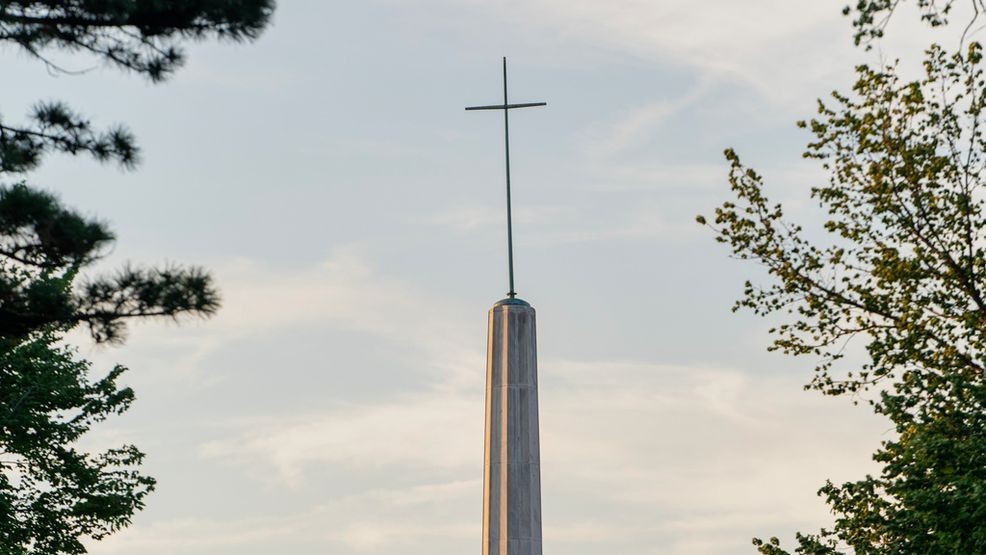OKLAHOMA CITY (KOKH) — The U.S. Supreme Court upholds the Oklahoma Supreme Court’s decision to block a religious public charter school.
The justices’ vote was tied 4-4, meaning the court automatically affirms the lower court’s opinion.
The Oklahoma Supreme Court’s decision only applies to the state, meaning the question of religious public charter schools could make its way back to the Supreme Court Justices.
“4-4 tie works for preserving religious liberty in Oklahoma,” Oklahoma Attorney General Gentner Drummond said. “I’m so proud of the United States Supreme Court for recognizing the legal analysis of the Oklahoma Supreme Court.”
The case centers around St. Isidore of Seville Catholic Virtual School and the state board that approved it against Drummond.
In June 2024, the Oklahoma Supreme Court ruled that the contract for the school was unconstitutional. After that, St. Isidore and the Oklahoma Statewide Charter School Board went to the United States Supreme Court with the case.
“Parents can teach their children the faith of their fathers and mothers,” AG Drummond said. “Schools can teach, let’s hope, math competency, reading competency, science and social studies.
The Alliance Defending Freedom represented the charter school board and said the case was important for two reasons: educational freedom and making sure that the state doesn’t discriminate against faith groups.
In March 2025, Oklahoma Attorney General Gentner Drummond filed a brief explaining why the proposed taxpayer-funded religious public charter school is not required by the U.S. Constitution.
The brief stated, in part:
Oklahoma readily agrees that there is no categorial bar against public monies reaching (and funding) private religious schools, including for devotional instruction and ministry, through such parental choice programs. No one doubts that such an education can be profoundly valuable. But it is not one that States must provide in public schools.
Within the brief, Drummond points out how a favorable ruling for St. Isidore would have consequences, including the possibility of religious institutions becoming subject to state regulation.
U.S. Supreme Court Justice Barrett recused herself from the case, leading to a tied decision.
Oklahoma Governor Kevin Stitt released a statement saying,
This 4-4 tie is a non-decision. Now we’re in overtime. There will be another case just like this one and Justice Barrett will break the tie. This is far from a settled issue. We are going to keep fighting for parents’ rights to instill their values in their children and against religious discrimination.
Drummond said he is proud to have fought against this “potential cancer” in Oklahoma and will continue upholding the law and protecting Christian values.
The Alliance Defending Freedom Chief Legal Counsel Jim Campbell said in a statement:
Oklahoma parents and children are better off with more educational choices, not fewer. While the Supreme Court’s order is disappointing for educational freedom, the 4-4 decision does not set precedent, allowing the court to revisit this issue in the future. The U.S. Supreme Court has been clear that when the government creates programs and invites groups to participate, it can’t single out religious groups for exclusion, and we will continue our work to protect this vital freedom for parents and students. We remain proud of our clients, the Oklahoma Statewide Charter School Board, and their brave stand for educational freedom.
Oklahoma State Superintendent Ryan Walters, who supports religion in schools, says he’s unhappy with how the justices voted.
“Very disappointed in the U.S. Supreme Court’s decision,” Walters said. “I believe this decision is antithetical to the religious freedoms in our U.S. Constitution. I believe it’s antithetical to the rights that parents have to direct their children’s education.”
Hiram Sasser, who represents Walters and his agency on behalf of First Liberty Institute, adds while he’s also disappointed, the fight against religious discrimination continues.
“We don’t know who the votes were, but what we do know is because there’s no precedent from this lack of opinion, we just get the opportunity to try again,” Sasser said.
Sasser says he believes the U.S. Supreme Court vote will result in lawsuits locally, and nationally to get this issue resolved.
The Freedom From Religion Foundation (FFRF) celebrated the deadlocked 4-4 vote.
“This is a crucial, if narrow, win for constitutional principles,” says FFRF Co-President Annie Laurie Gaylor. “A publicly funded religious charter school would have obliterated the wall of separation between state and church. We’re relieved that, at least for now, the First Amendment still means what it says.”
Gaylor acknowledged the fight isn’t over, saying forces that try to undermine public schools and constitutional freedoms are already regrouping. The FFRF said it will continue to defend secular education and the rights of all Americans to be free from government-imposed religion.
“This case was never about the free exercise of religion; it was about government-sponsored religion,” said FFRF Legal Director Patrick Elliott. “Taxpayers should never be forced to fund religious indoctrination, especially through schools that are supposed to be open to all students.”
The Archbishop of Oklahoma City, Most Reverend Paul S. Coakley, and the Bishop of Tulsa, Most Reverend David A. Konderla, issued a joint statement saying they are disappointed by the Supreme Court’s vote.
Families across the state of Oklahoma deserve the educational opportunities presented by St. Isidore of Seville Catholic Virtual School. We are disappointed that the Oklahoma State Supreme Court’s decision was upheld in a 4-4 decision without explanation.
We remain firm in our commitment to offering an outstanding education to families and students across the state of Oklahoma. And we stand committed to parental choice in education, providing equal opportunity to all who seek options when deciding what is best for their children.
We are grateful to Governor Kevin Stitt and his courage in supporting school choice. And we are thankful for the generous representation provided by Notre Dame Law School’s Religious Liberty Clinic and by Michael McGinley at Dechert LLP.
In light of this ruling, we are exploring other options for offering a virtual Catholic education to all persons in the state.

